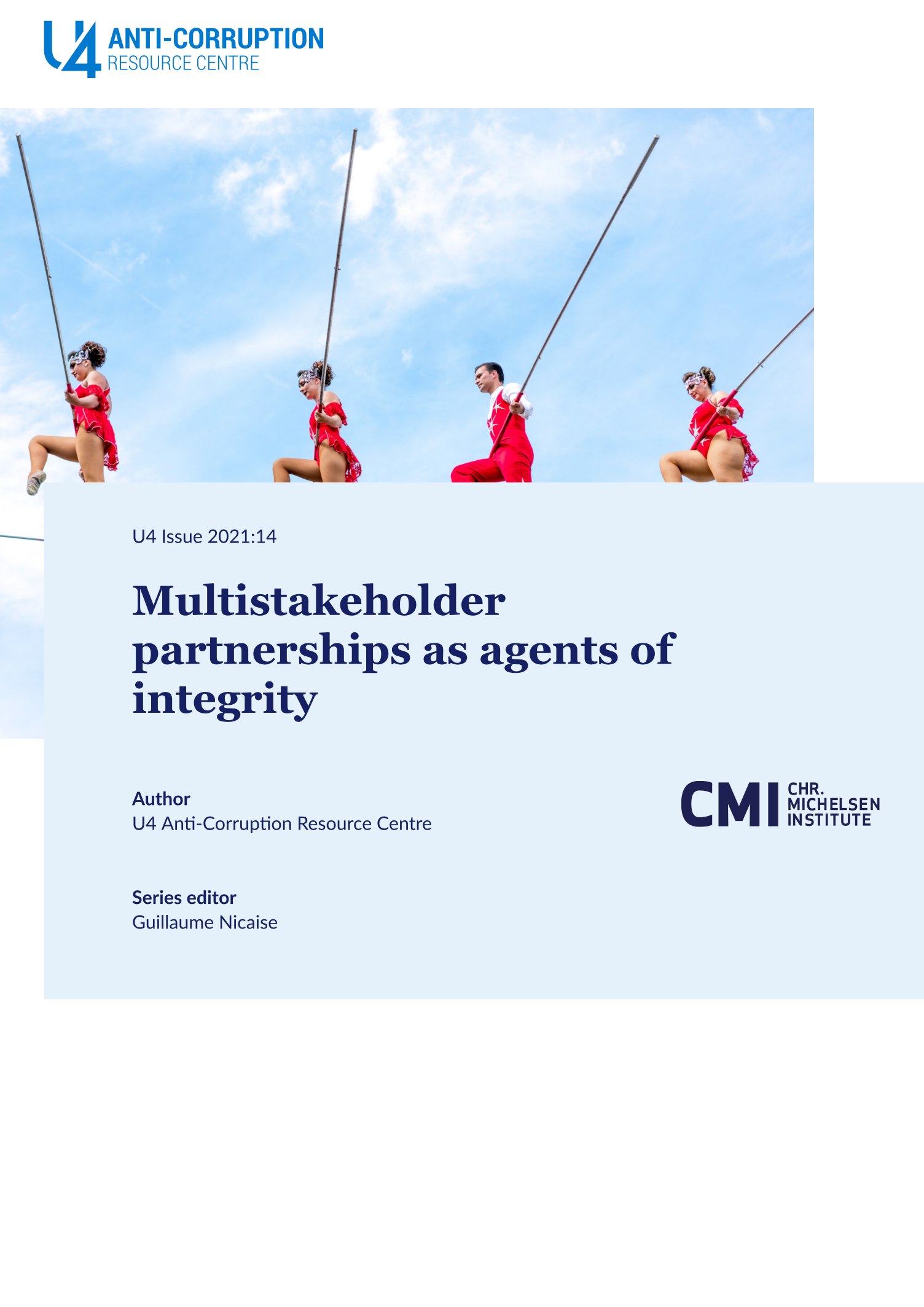Main points
- The Maritime Anti-Corruption Network (MACN), the Infrastructure Transparency Initiative (CoST), and the Partnership Against Corruption Initiative (PACT) have developed capacities to, respectively, change government legislation, set norms in a particular sector, and promote new ideas on integrity.
- A business-led partnership like MACN is based on a horizontal power structure, where stakeholders follow the lead of key players in the sector. It relies on permanent resources, along with a high level of buy-in and engagement from stakeholders, to modify the status quo.
- A public-led initiative such as CoST relies on a more vertical power dynamic, where the government uses its influence and operational capacity to enhance integrity. This acts in combination with civil society and private sector support to monitor changes and raising concerns.
- Monitoring and enforcement within MSPs can be problematic. Within a horizontal power structure, members of the partnership have neither the capacity nor the willingness to monitor each other. Within a more vertical power structure, led by government, reliance on the public sector might impede long-term involvement. It may also discourage collaboration from other partners, resulting in less engagement from civil society and the private sector.



